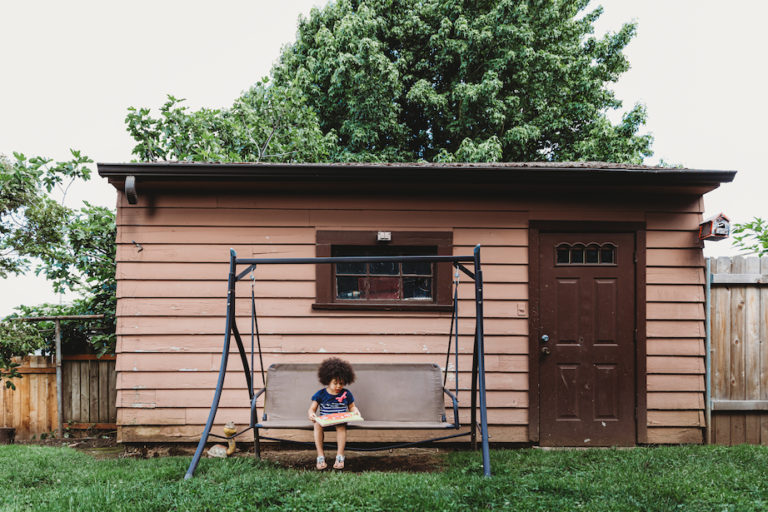Are you interested in buying a foreclosed home? If you’re up for the potential risks, delays, and hidden costs, your first step is to understand the four types of “distressed” properties you’ll see in the listings: pre-foreclosures, short sales, foreclosures up for auction, and REOs. Exactly what are you looking at?
When most people think of foreclosures, they think of homes being sold at public auction. Not to mention the sad stories behind them, of owners who fell on hard times. But a foreclosure auction happens at a certain point in what’s usually a long process — you can buy before or after that too.
Let’s look at the four types of distressed properties, where they fit into the typical foreclosure process (it varies by state), and some of the pros and cons of trying to buy each type. Whatever type you might have your eye on, it’s even more important than usual to work with an experienced real estate agent.
Foreclosure: It’s a progression
Again, foreclosure is a process that can create four types of distressed properties, and you can potentially buy anywhere along the line:
1. Pre-foreclosure. The home is in default and might (or might not) be foreclosed on soon. While websites like Zillow list homes in pre-foreclosure, most of them are notfor sale and perhaps never will be.
2. Short sale. Short sales typically happen when a homeowner who’s behind on the mortgage tries to sell for less than they owe (they’re “short”). It can be better for them than an auction.
3. Foreclosure auction. This is what most people think of as “foreclosure”: a home sold at public auction. These auctions are also called sheriff’s sales or trustee sales.
4. REO. That stands for “real estate owned.” The home went into foreclosure but didn’t sell at auction, so the lender repossessed it.
So that’s the typical progression. Now let’s go into more detail, including some of the pros and cons of buying at each stage. (There’s a lot of variability in these sales, so our pros and cons aren’t comprehensive.)
Pre-foreclosures: Not for sale, but …
The pre-foreclosure label tells you that the owner is behind on their mortgage payments. How far behind? The threshold for pre-foreclosure varies from state to state. Usually, there’s a notice of default on the public record, which is the very first step in the foreclosure process. Sometimes, foreclosure proceedings are actually underway even though there’s no public notice yet.
Again, a home listed as a pre-foreclosure is probably not for sale. But given that the homeowner is behind on the mortgage, it’s possible that it could come on the market as a short sale or a foreclosure. Which means the homeowner might be interested in selling before that happens. It’s a delicate situation, obviously, but some buyers contact homeowners at this point.
Pros:
- If the owner does want to sell, you have a chance to be the first to make an offer, without the competition and complications of a short sale or a foreclosure auction. The seller might rather avoid all that too.
- Distressed homes are often in poor condition. At this early stage of the foreclosure process, a home is as good as it’s going to get.
Cons:
- Chances are, you won’t be the first to make an offer. Seasoned investors are way ahead of you and step in immediately, often with cash.
- The owner could come up with the money they need to bring their mortgage payments up to date before you can close on the transaction.
Short sales: Everyone avoids an auction
If the lender agrees to it, a homeowner sometimes tries to sell for less than they owe on their mortgage. Why would the lender go for this? Because it might be preferable to the hassle and uncertainty of a foreclosure auction for them too.
Typically, short sales happen because the homeowner is behind on the mortgage and feels there’s no way to catch up. Sometimes, though, they’re all paid up but “underwater” — the home’s market value is less than they owe. A lot of people found themselves underwater after the 2008 housing crash, and it’s still a problem in some areas. If these homeowners need to sell, a short sale is the result.
Pros:
- Short-sale properties are often in better condition than foreclosed ones, partly because someone’s still living there.
- There’s often less competition than at a foreclosure auction.
Cons:
- The lender has to approve the offer.
- Your contract can be canceled for any reason and at any point up to closing. Like if someone makes a better offer. You’ll lose anything you paid for inspection and appraisal.
- These sales can drag out for six months or more, with no guarantees. In the meantime, home prices and interest rates could go up.
Foreclosure auctions: Competing to pay cash
Paying cash at a public auction is the hardest, riskiest way to buy a distressed property. While anyone can bid, what usually happens is the foreclosing lender bids the amount owed to them and wins, and later puts the home back on the market. It’s also common for hard-core investors to swoop in. Ordinary buyers rarely have the experience or the cash to compete.
Pros:
- If you’re both smart and lucky, you might get a deal.
Cons:
- You’re required to pay cash on the spot. To state the obvious, most first-time buyers simply can’t do this.
- Most foreclosed homes are sold “as is,” and having been vacant for a while, may need extensive repairs.Repairs can’t be a contingency of the sale.
- Usually, the home can’t be inspected in advance, although you can bring an inspector to the sale.
- In addition, no seller disclosure is required.
- Clear title is not guaranteed. Quite a risk!
REOs: Safer to buy, but hard to get
When a foreclosed home doesn’t sell at auction, it becomes an REO, or “real estate owned” home. The lender now owns it, and the requirements attached to that are part of the reason that an REO is the safest kind of distressed home to buy.
Lenders are sometimes eager to get rid of these properties and will sell them at below market value; on the other hand, they may be focused on covering their costs. Individual homebuyers can have a hard time getting their hands on REOs because lenders will bundle them and sell the whole lot to a large investor.
Pros:
- The bank is required to pay off any liens, so you won’t have that potential issue hanging over your head.
- You can have the home professionally inspected before you buy, so you know what you’ll be getting into for repairs.
- The seller is out of the picture at this point, which can make the sale less complicated.
- Banks might be more willing to finance a property they own.
Cons:
- REOs are at the far end of the foreclosure spectrum and are often in the worst condition.
- No seller disclosure is required.
- You might have to wait several weeks to hear from the bank whether your offer has been accepted.
- Your contract can be canceled for any reason and at any point up to closing, and the lender might get a better offer. You’ll lose anything you’ve paid for inspection and appraisal
Next steps. If you’re interested in buying a foreclosure, we recommend two next steps: 1) learn more about the potential hidden costs and 2) find yourself a specialized real estate agent and a real estate lawyer (your agent should be able to recommend one). Good luck, and be careful!
Ready to take the next step in your homebuying journey with all the confidence of a smart and savvy homebuyer? Our comprehensive online homebuyer course is simple and easy to access on your computer, tablet, and mobile device. It’s all the information you need, all in one place. Go ahead and get started today.




